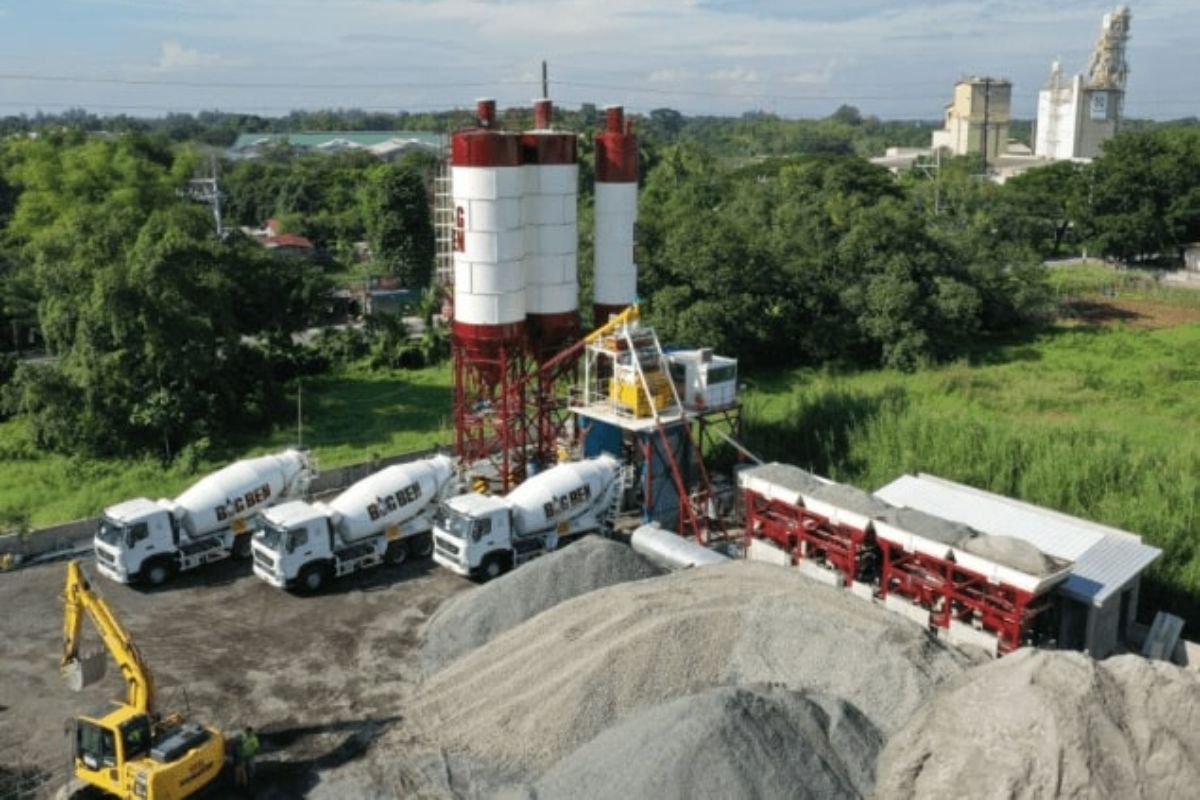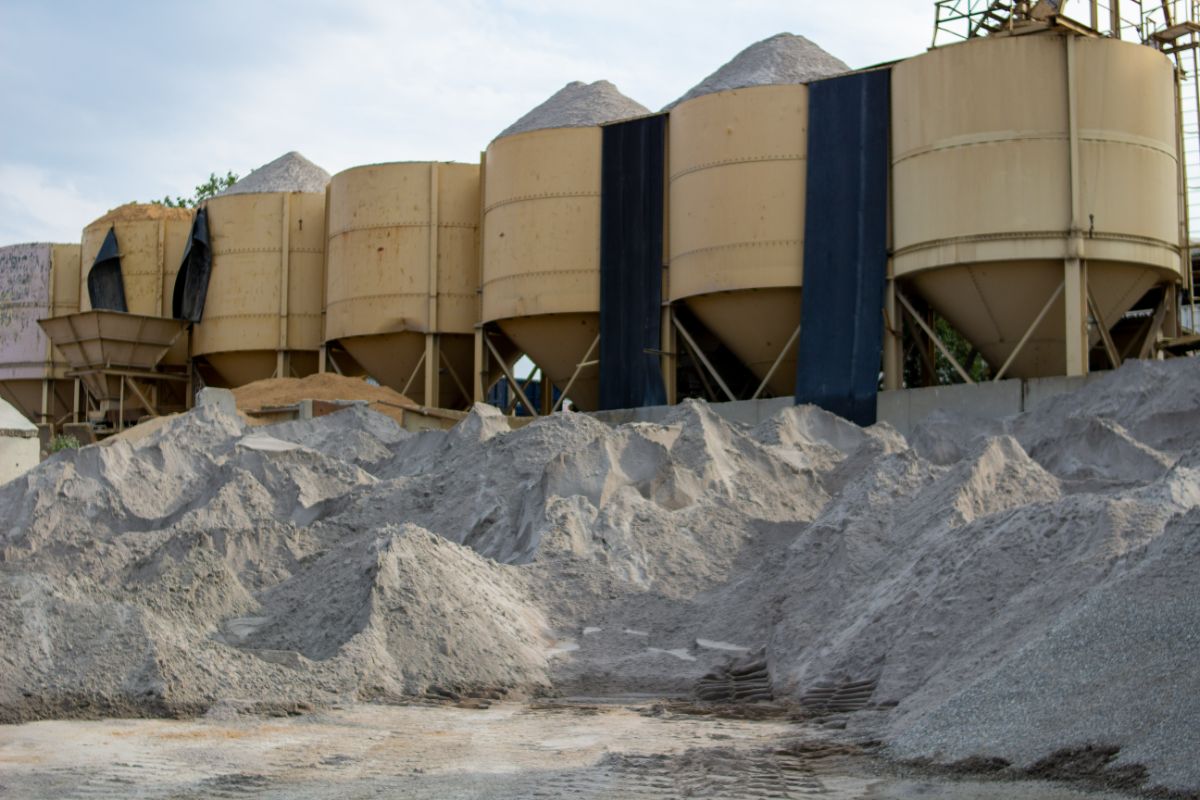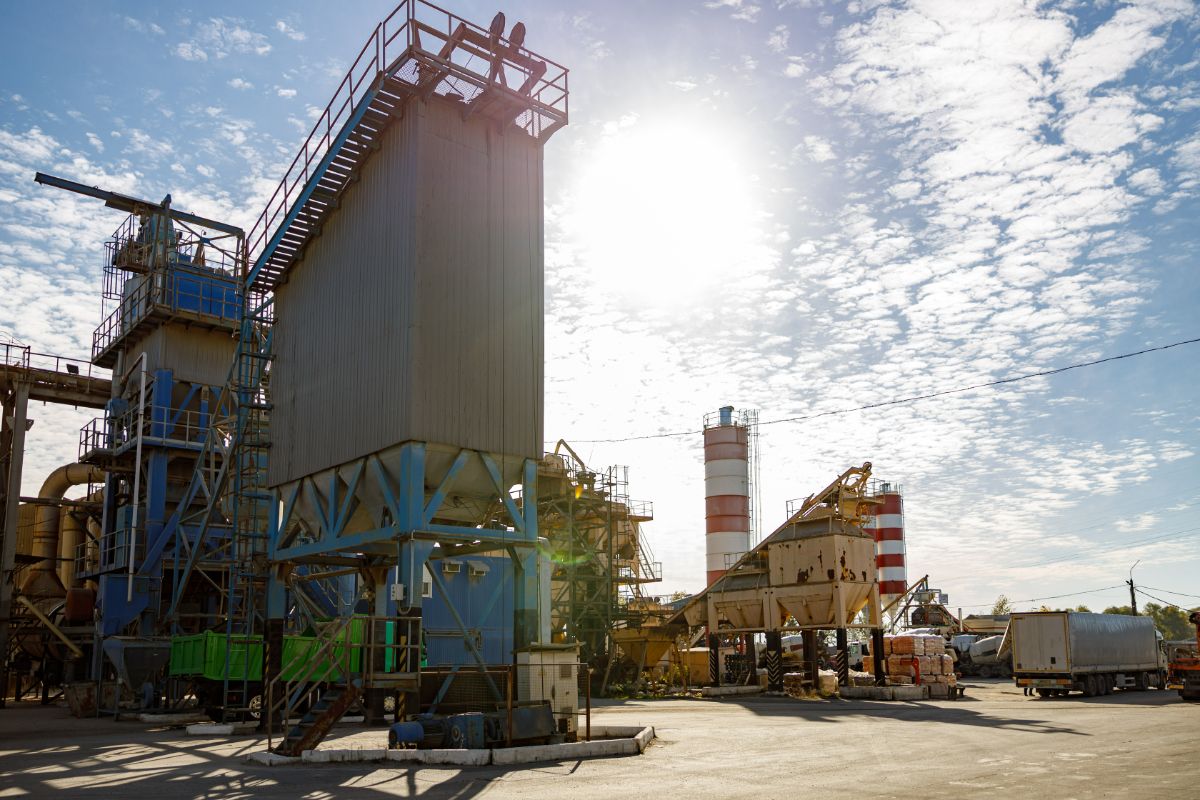

Overview
- Precision in mixing is a key advantage, achieved through calibrated systems, automated conveyors, and advanced mixing techniques in twin-shaft mixers.
- Reduced labor dependency is another benefit, with automated processes minimizing manual handling of materials, enhancing efficiency, and reducing the potential for human error.
- Different types of batching plants cater to various project requirements, including dry mix plants for on-site mixing, wet mix plants for centralized mixing, stationary plants for large-scale projects, and mobile plants for flexibility and remote site relocation.
In the construction industry, precision and efficiency are paramount. That’s why contractors and crew rely on a critical component such as batching plants to accomplish this. These machines play an important role in ensuring the quality, consistency, and timely delivery of concrete in construction projects.
This article delves into the essential role of batching plants, exploring how they streamline the production process, enhance project efficiency, and elevate the standards of quality ready-mix concrete.

The role of batching plants in the construction industry is pivotal, offering a range of advantages that have revolutionized the way concrete is mixed and supplied for various projects.
Through calibrated systems, this type of plant ensures accurate measurement and proportioning of raw materials, including aggregates, cement, and water. Automated conveyors and scales precisely dispense each component. This adheres to predetermined ratios.
This control over material quantities, coupled with advanced mixing techniques in twin-shaft mixers, guarantees a homogenous blend. The result is a consistently high-quality concrete mix, that meets exact specifications.
This precision in mixing is essential for construction projects, ensuring uniformity, strength, and reliability in the final concrete product.
A batching plant reduces labor dependency through its automated and systematic processes. The incorporation of conveyor systems, digital scales, and advanced mixers minimizes the manual handling of materials. Aggregate feeding, weighing, and transfer to the mixing unit are streamlined and automated, significantly reducing the need for labor-intensive tasks.
Precision in measuring and mixing, achieved through technology, decreases the reliance on manual labor for these intricate operations. This not only enhances efficiency but also mitigates the potential for human error. This contributes to a more cost-effective and reliable concrete production process, thereby reducing the overall dependency on manual labor in construction projects.

Concrete batching plants come in various configurations to suit the specific requirements of diverse construction projects. These plants are instrumental in delivering high-quality concrete efficiently.
They employ manual or digital scales to measure and aggregate cement. Water, another essential component, can also be measured separately. The materials are then mixed in a dry mixer during transportation to the construction site. This method is especially suited for projects where materials need to be transported and mixed on-site efficiently.
In these plants, all ingredients, including water, are mixed at a central location within the plant. The ready-mixed concrete is then dispatched to the construction site using transit trucks. This method reduces the risk of premature concrete setting and is preferred for applications where rapid, uniform mixing is required.
Stationary concrete batching plants are the go-to choice for large-scale and industrial projects with high concrete demands. These plants are situated at a distance from the construction site and deliver ready-mixed concrete to the project location using trucks. Their size and ease of setup make them efficient for consistent, high-quality concrete production. It is vital to ensure that concrete trucks reach the site promptly to prevent freezing and maintain the quality of the material.
Mobile batching plants provide flexibility when the stationary plant’s location increases transportation costs. They feature storage, weighing, mixing, and discharging units, offering adaptability in concrete production. Contractors can adjust production based on specific project requirements after plant setup. Once the construction is completed, mobile plants can be relocated to other sites, making them more suitable for smaller-scale or remote projects.
The role of batching plants ensures the efficient and precise production of high-quality concrete for diverse projects. These plants offer advantages such as automation, high mixing performance, and the ability to provide concrete for various construction needs. Understanding their significance helps construction professionals streamline their operations, save time, and ensure the consistency and reliability of concrete supply, ultimately contributing to the success and durability of construction projects.
Big Ben is your trusted source for reliable and efficient ready-mixed concrete solutions in the Philippines. Our cutting-edge batching plants are dedicated to delivering consistent quality and unwavering reliability, catering to a wide spectrum of projects, from extensive infrastructure endeavors to smaller construction initiatives. Get in touch with us today to explore the advantages of partnering with a prominent industry supplier.